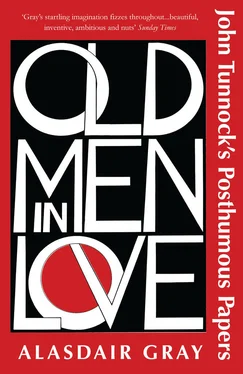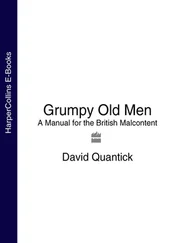The weather was neutral, neither cold nor warm, wet nor sunny, the sky one ceiling of smooth grey cloud. I love such dull days, perhaps because I am a rather dull man. I wandered through the University grounds, crossing Kelvin Way and entering the park. Mastermind tells me Glasgow parks are now dangerous places, infested by gangs of youths from District Council housing schemes who, when Glasgow was productive, would have been apprentices learning to build or operate ships and machines, but now live on Social Security benefits while stealing money for drink and drugs. Casual violence is their main recreation. Some openly call themselves Nazis and patrol the inner public parks, maiming or murdering folk who seem homosexual or foreign, and folk with darker skins are the usual victims. The chief Kelvin Park terrorist calls himself Hitler — how does a quiet, erudite, stay-at-home body like Mastermind know such things? I saw that the monolithic bust of Carlyle facing the old park bridge had its nose smashed off again. Ten years ago it was restored in ciment fondu after a similar act of vandalism by people who (judging by words spray-painted on a nearby statue of a soldier commemorating the Boer War) were feminists defying patriarchal authority. This time the nose was probably removed by one of Hitler’s henchmen who did not know Hitler the First was encouraged by Carlyle. 20
When writing hard I often find sentences in an accidentally opened book that help the work forward, so on leaving the park I visited Voltaire and Rousseau. This big low-ceilinged shed (probably once a livery stable) has all kinds of second-hand books stacked in high cases and in piles on the floor. In a box of dog-eared paperbacks I found Picture This by Joseph Heller, published by Pan Books of London. I had never heard of it, though Heller’s Catch 22 is one of the three great novels about World War II. Glancing into Picture This I was stammygastered to find it a one volume trilogy about (1) Socrates and Athenian democracy, (2) Rembrandt and the Dutch Republic, (3) the modern New York art market. Paid 50p, brought it home, read, digested it before sleeping.
Picture This reports on Periclean Athens more than dramatising it, but tells much that I missed. Socrates went barefoot. Heller also shows the rapacity of Dutch capitalism better than I show that of Florence. His presentation of Rembrandt is masterly — he knows more about oil colour than I do about tempera and fresco. His third section shows modern capitalism working through millionaire art deals in New York and refers to the Vietnam war in a way that exposes my writing as antiquarian exercizes. I have not shown the ignoble sweat, toil and mercenary warfare that PAID FOR the freedom and confidence that let Italians make astonishingly lovely towns. Why does modern Capitalism, despite commanding much more wealth, only produce more cars, motorways, pollution, drugs, weapons and warfare? What is it doing to Britain? To Scotland? To Glasgow? Why did that never occur to me as a subject?
Doctor Johnson said the only measure of a good nation is how well it treats the poor. Surely orphans, the sick and disabled, homeless and unemployed and unemployable are treated better now in Britain than in Italy five centuries ago? Perhaps not. I once read that British travellers used to greatly admire schools, orphanages and hospitals for the poor in Italy. These, of course, were attached to monasteries and staffed by monks and nuns. Britain had such places until Henry VIII first nationalized monastic lands and buildings, then sold them to private owners, thus destroying what had been (no doubt) a semi-corrupt welfare state, but one which was meant to care for the poor. Henry’s Protestant reforms kept him and his greatest supporters rich, made many in the middle class richer while increasing the number of beggars. Why does this sound familiar?
I was deluded to think I could know Athens and Florence as well as Dickens, Balzac, Dostoevsky, Joyce knew London, Paris, St Petersburg, Dublin. Making Socrates go barefoot won’t change that. Mastermind tells me tomatoes were impossible in Filippo’s Florence because they came from America which Columbus reached twenty-seven years after Filippo died. Changing them to artichokes won’t help. The Mona who put him into the Carmelite monastery, I have discovered, was his mother, not his aunt. Diamante assisted Filippo until he died, but Filippo had a sister who did the housekeeping. And Pope Eugenius died five years before Filippo seduced Lucrezia. And perhaps she seduced him. And I haven’t the faintest idea how ordinary people made their livings in the weaving sheds and dye-works that made Florence rich. Maybe most lived fairly satisfactory lives, like fully employed, well-paid British workers between 1945 and 1970.
I am haunted, oppressed by feeling I should write about the life I know, but what do I know about life? What has life taught me about Glasgow? How can an old man of very little experience put the world where he lives into a good story?
Think about it, Tunnock. You have nothing else to do.

Unable to start thinking about it. After penning last entry around two in the morning I bathed, changed into clean pyjamas slippers dressing gown and was enjoying small whisky-toddy nightcap by livingroom fire when doorbell rang and rang and rang until I opened door to large crying baby upheld by woman saying hysterically, “Can I come in Johnny? I’ve nowhere else to go.” In she came and it was Niki. Not knowing what else to do I led her into kitchen. She sat down at table, burst into tears so I had two weeping females (the wean was female) in this house where to my certain knowledge nobody since I was a baby has wept. I tried quieting them with tea and warmed milk which she put into bottle for baby. I made cold beef pickles tomato cheese sandwiches because she was hungry and stiff hot toddy that she gratefully drank after to my horror adding some to baby’s bottle. Between bursts of hysterical tears in phrases I did not try to fully understand she spoke of being beaten deserted involved in vague unspeakable crimes by someone who then attempted murder and suicide with or without success. Only two of her sentences were clear and often repeated, “Don’t throw us out Johnny, we’ve nowhere else to go,” and, “Please don’t send for the polis.”
I escaped from her by rushing upstairs to make a bed. Luckily wardrobe in main bedroom still has thanks to Nan big drawer of sheets blankets pillowcases I never needed so quickly made up bed in small room opposite so now Niki and Mo (what is Mo short for? Surely not Moses or Moloch) are sleeping there. I hope. How long will they stay?
During our session in kitchen Niki produced photograph from pathetic little knapsack that had held Mo’s bottle, gave it me saying, “This is yours, sorry there’s no frame.” Without pleasure recognized young self in gown and mortarboard between Nan and Nell. Asked why had kept it she said, “I sometimes liked looking at it.” This suggests she sometimes liked remembering me how strange. I hardly gave her a thought after she vanished two years ago.

In the wee small hours last night, perhaps around three o’clock, I heard the tapping on my bedroom door that I had been dreading for over a week. I unlocked and opened it a few inches and saw Niki in nothing but her knickers. In a voice low enough not to wake Mo in the room behind her (Mo wakens horribly easily) she asked if she could join me? I whispered, “Sorry, not with a baby in the house,” and cautiously shut and locked the door again, feeling terribly guilty. I have never before had the chance of comforting a young thing and gratifying myself at the same time, but have no sexual appetite for pitiable women.
Читать дальше













